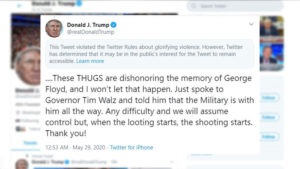August 18, 2011; Source: National Labor Relations Board | The Office of the General Counsel at the National Labor Relations Board has issued a report detailing the outcomes of 14 cases involving labor incidents and social-media use. The whole report is interesting and important reading but here is one excerpt relating to a case that may give you a sense of the delicacy of the considerations involved. In this case the termination of the employee was upheld.
“Employee Who Made Facebook Comments About Mentally Disabled Clients Was Not Engaged in Concerted Activity”
In this case, we considered whether the Employer—a nonprofit facility for homeless people-—violated the [Labor Relations] Act when it discharged an employee for inappropriate Facebook posts that referred to the Employer’s mentally disabled clients. We concluded that the employee was not engaged in protected concerted activity and therefore the discharge was not unlawful.
In May 2010, the Employer received a grant to develop a new residential program for residents with significant mental health issues. The employee, who had been a part-time residential assistant, became a full-time recovery specialist in the new program. On January 27, 2011, the employee, while working on the overnight shift, engaged in a “conversation” on her Facebook wall with two Facebook “friends.” Among other things, she stated that it was spooky being alone overnight in a mental institution, that one client was cracking her up, and that the employee did not know whether the client was laughing at her, with her, or at the client’s own voices. The two “friends” who commented on the employee’s posts were not coworkers. The employee was Facebook “friends,” however, with one of the Employer’s former clients, who saw the postings and called the Employer to report her concern. As a result, when the employee reported for work on January 31, she was terminated.
Sign up for our free newsletters
Subscribe to NPQ's newsletters to have our top stories delivered directly to your inbox.
By signing up, you agree to our privacy policy and terms of use, and to receive messages from NPQ and our partners.
The termination letter referenced the phone call from the former client and quoted the employee’s January 27 Facebook posts. The letter stated that “[w]e are invested in protecting people we serve from stigma” and it was not “recovery oriented” to use the clients’ illnesses for the employee’s personal amusement. The letter also cited confidentiality concerns and noted that the employee’s posts were entered when she should have been working.
What I think is clear here – although it may not have figured as a major legal point – is that the employee was in a position where she was trusted to respect and keep confidential the personal issues of those residing in the facility. I think this falls under a violation of trust akin to the recent newswire about the intern at the death penalty organization writing about a client. I would venture that these are ethical issues on which many organizations may wish to develop explicit policies. See here for an article about social media policies.
—Ruth McCambridge













